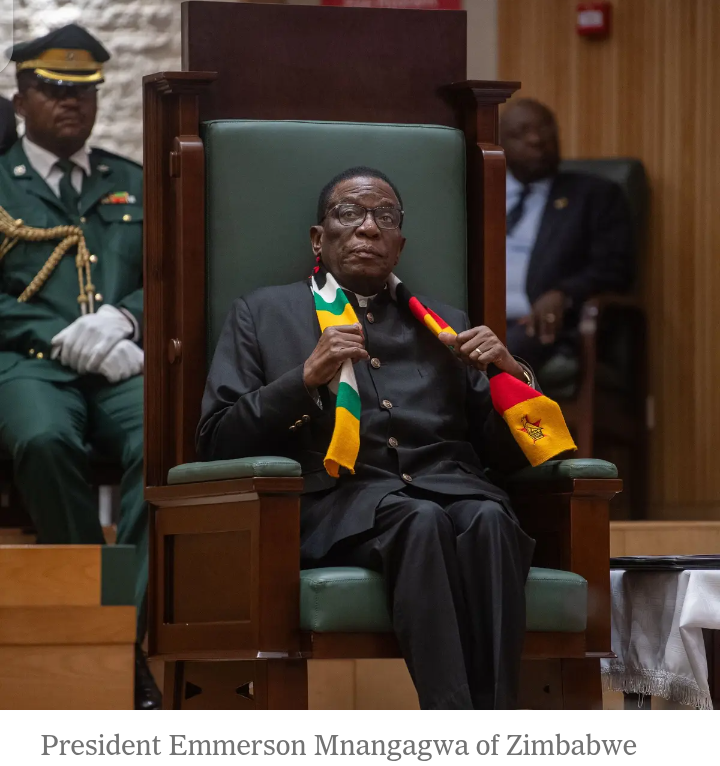Zimbabwe’s President Faces Internal Party Rebellion Amid Calls For Resignation.
President Emmerson Mnangagwa of Zimbabwe is facing growing opposition from within his own party, ZANU-PF, as calls for his resignation intensify. This development marks the most significant challenge to his leadership since he took power in a 2017 coup that ousted long-time ruler Robert Mugabe.
Speaking at a recent party meeting, Mnangagwa, 82, described the demands for his removal as “treasonous” and vowed to suppress dissent. He accused internal party critics of attempting to destabilise the government, warning that any moves against his administration would be met with strong resistance.

Despite government threats, party members and activists have been pushing for demonstrations, though planned nationwide protests on Monday saw limited turnout, with many citizens opting to stay home for fear of a crackdown.
Economic Hardship and Political Tensions
Zimbabwe has been grappling with severe economic challenges, including persistent hyperinflation, widespread unemployment, and a struggling local currency. The Zimbabwe National Chamber of Commerce estimates that nearly 80% of jobs are in the informal sector, leaving many without stable incomes.
Critics argue that Mnangagwa has failed to deliver on promises of economic and democratic reforms. His administration has also faced accusations of corruption, political repression, and election rigging, further damaging Zimbabwe’s international standing. Western nations, including the United States, have imposed sanctions on government officials over human rights concerns.
Power Struggles Within ZANU-PF
A key player in the growing opposition against Mnangagwa is Vice President Constantino Chiwenga, a former army general who was instrumental in the coup that removed Mugabe. Some within the ruling party believe Chiwenga should take over leadership, accusing Mnangagwa of attempting to extend his rule beyond his second term, which ends in 2028.
Earlier this year, ZANU-PF leaders proposed amending the constitution to allow Mnangagwa to run for a third term—an idea that has sparked outrage among his opponents.
Meanwhile, political tensions escalated further when Mnangagwa dismissed Zimbabwe’s army chief, Anselem Sanyatwe, along with the heads of the police and intelligence services. Analysts believe these moves were intended to prevent a potential military takeover.
Growing Discontent and Public Unrest
The latest rebellion within ZANU-PF has been led by Blessed Geza, a former senior party official and liberation war veteran. After publicly calling for Mnangagwa’s resignation, Geza was accused of treason and has since gone into hiding.
Despite these internal divisions, Mnangagwa’s allies have dismissed the opposition as insignificant. Tafadzwa Mugwadi, a ZANU-PF Member of Parliament, downplayed the rebellion, stating, “I have no record of any internal factional fights.”
Security Tightened Amid Uncertainty
Authorities have ramped up security measures, with a heavy police presence reported in Harare and other major cities. Officers have been conducting roadblocks and searching vehicles for weapons, aiming to prevent potential violence.
As Zimbabweans watch these political developments unfold, many remain sceptical about the possibility of change. With the country’s economic situation worsening and political tensions rising, the future of Mnangagwa’s leadership remains uncertain.


